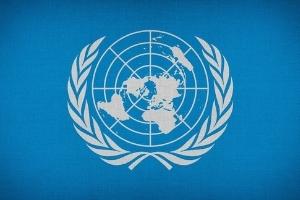International
75 Years On, Does the UN Still Matter?

2020 marks the 75th anniversary year of the United Nations (UN). On September 21, the organization will commemorate its anniversary with a high-level meeting of the UN General Assembly, and the theme of the meeting is “The Future We Want, the UN We Need: Reaffirming our Collective Commitment to Multilateralism.” Ahead of this meeting, we asked SIS faculty if the UN still matters today, and why.
Amitav Acharya
The world we live in today is vastly different from the time when the UN was established. India has overtaken the GDP of France and Britain—its former colonial master—yet these two still hang on to their veto privilege in the UN Security Council. The question is not whether the UN still matters but whether it can matter much more if it reflected the actual shifts of power and ideas that have occurred since its creation in 1945.
Susanna Campbell
The UN matters, perhaps more than ever, because we are faced with a global pandemic, the consolidation of poverty and violence in fragile and conflict-affected countries, growing transnational security threats, and many other crises that no single state can address on its own. The question, for me, is not whether the UN still matters but how it can address these challenges at a time when the UN Security Council—the UN's governing body in charge of maintaining international peace and security—is unable to make important peace and security policy decisions because of disintegrating diplomatic relations between the US, China, and Russia.
Ken Conca
With the COVID-19 crisis and the battering of the world economy, we are seeing the consequences of inadequate capacity to manage risks, respond to crises, and coordinate actions among governments. The UN is critical to all of the above, and nowhere is this clearer than on the environment. We’re flirting with a future in which nations scramble to compete for breathable air and drinkable water, as they now compete for protective gear and hospital equipment. Closing borders and gutting global governance arrangements won’t protect us from climate change any more than it has shielded us from disease. We should be strengthening the UN, not undermining it.
Caroline Croft
The UN was founded to embody diplomacy at its highest levels. Working on and resolving issues with other nations in a universal body lends itself to constructive humanity for all. The various committees that are a part of the UN structure provide aid to women, children, development, the environment, human rights advocacy, sustainable growth, cultural preservation, and health and reflect the highest standards for the globe. The world is fortunate to have the United Nations.
Johanna Mendelson Forman
Among the organizations formed in the wake of World War II, the United Nations has been more welcoming to nations than most institutions, imposing little responsibility or criteria on its members. Both tyrants and democrats have had a place at the table. And it is precisely because the UN was conceived as a community of nations rather than a community of democracies that it has endured.
As the organization celebrates 75 years as the principal forum for resolving global challenges, it is caught at a moment when faith in its capacity to lead is threatened. A global pandemic is the backdrop for this commemoration of the institution that kept the peace and lifted millions out of poverty. It now faces its own existential crisis unless the United States steps up to the task of reviving the principles of multilateralism to address the most urgent threats we face: climate change, nuclear proliferation, and mitigation of conflicts driven by food insecurity and drought.
While there are many plans to envision a new United Nations, at the end of the day, we must work with the institution that we have. Moreover, it is important to remember that the different agencies of the UN have often been greater than its governing mechanism, the General Assembly and the Security Council. In fighting a pandemic or addressing ongoing human migration, food insecurity, or the global conflicts that require peacekeepers, the organization remains an effective operation that must continue its mission of security and development worldwide.
Susan Rice
The challenges of the 21st century are not ones that a single nation can tackle alone. Climate change, terrorism, nuclear proliferation, refugee flows, and global pandemics do not respect national borders. While the UN is imperfect, it remains one of the most effective and legitimate instruments to marshal our collective will and resources to face these challenges. The difficult work that UN agencies do every day to advance peace, human security, development, and universal rights across the world is invaluable to all of humanity.
Michael Schroeder
Despite the need for an organization like the UN to coordinate national responses to a dizzying array of transnational threats and challenges, today’s geopolitical realities should temper our expectations. Still, the UN has a critical role to play. As tensions between the world’s big powers intensify, they will need a forum like the Security Council to keep them talking. Because when talks breaks down, one or more sides is going to feel the pressure to escalate the conflict. In addition, the Member States still need operational UN agencies like the World Health Organization or UNHCR to manage complex emergencies and alleviate at least some suffering.
